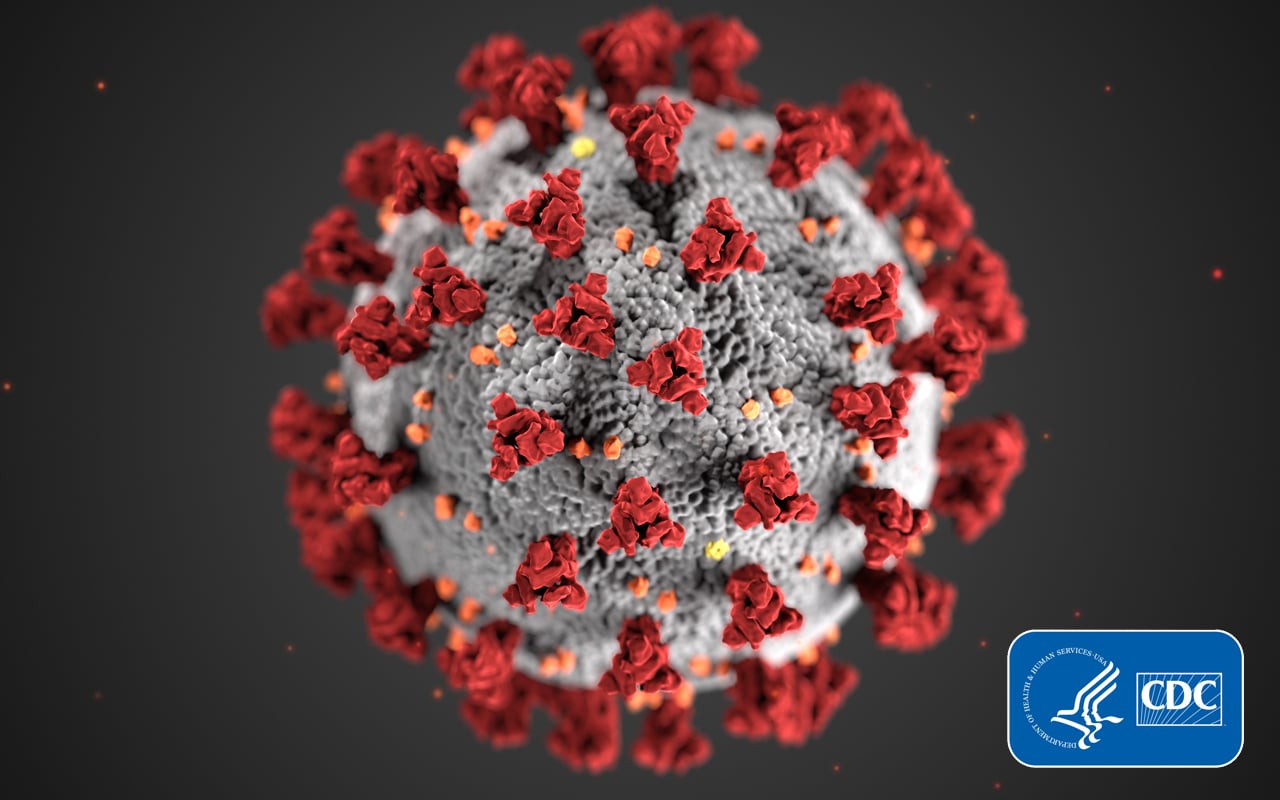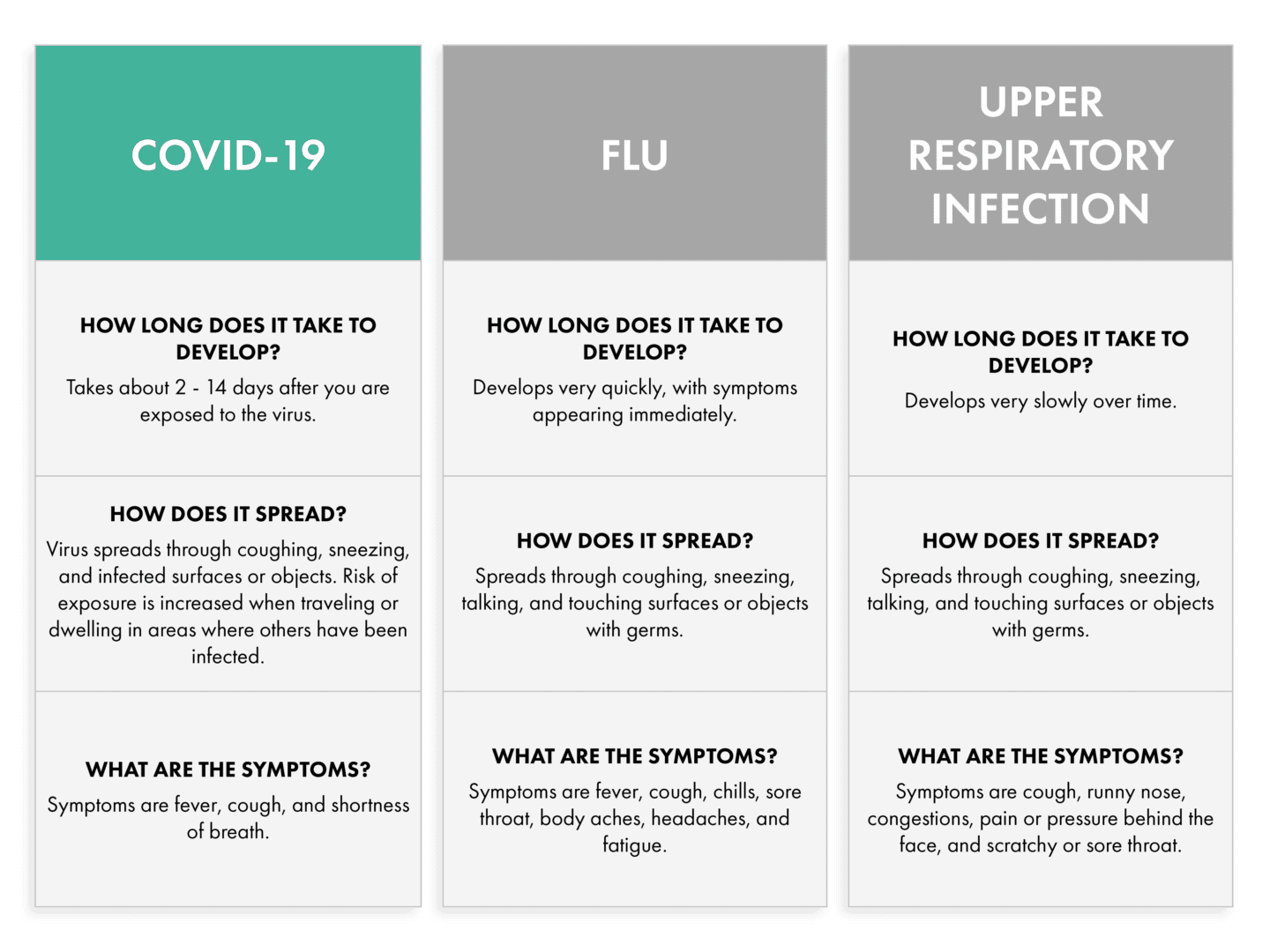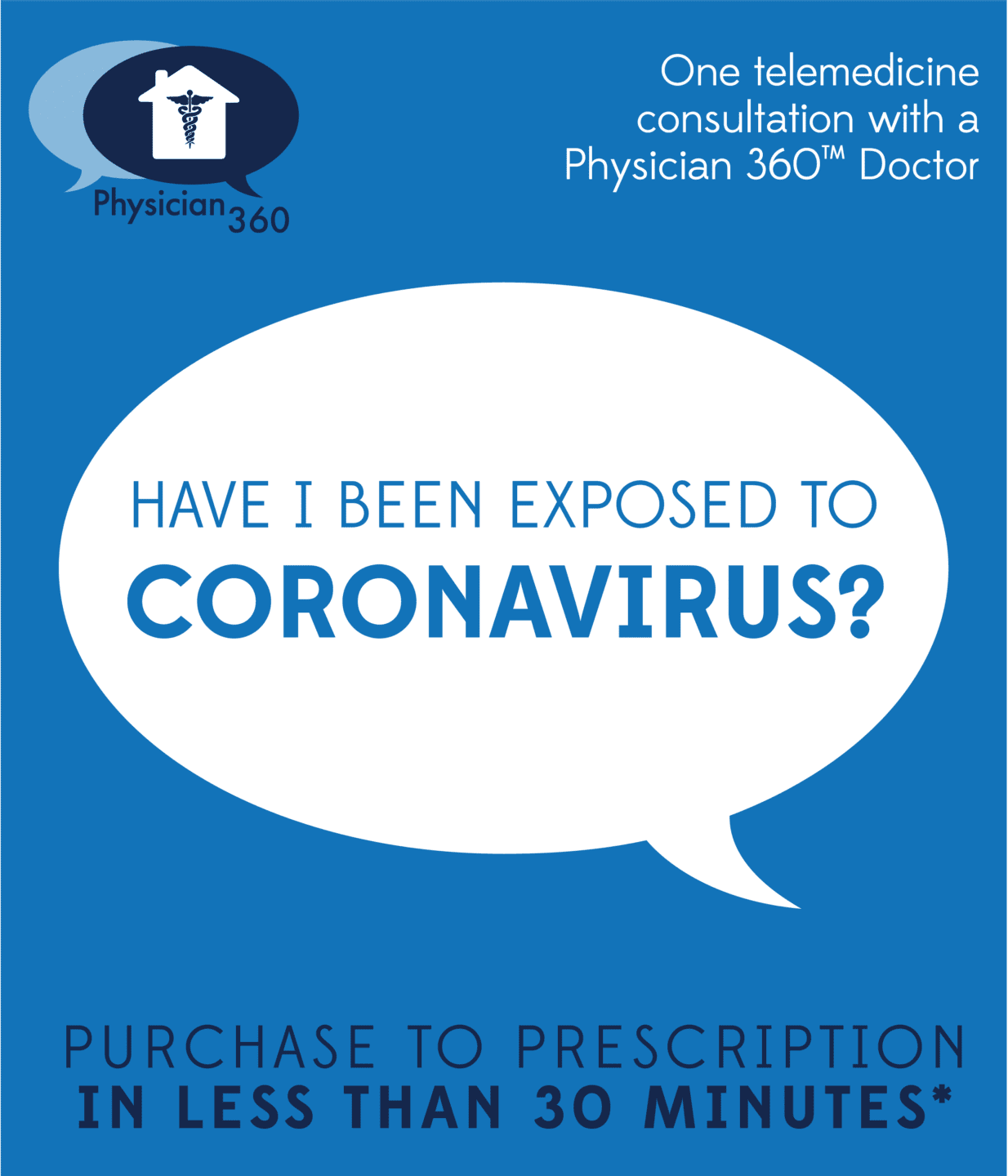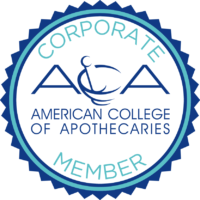
Coronavirus disease 2019 (COVID-19) is a respiratory illness that can be spread from person to person. COVID-19 has led to an outbreak of respiratory illness around the world, and according to the CDC, more cases are likely to be identified in the near future. COVID-19 is a novel coronavirus first identified during an outbreak in Wuhan, China.
What are the symptoms?
The symptoms of COVID-19 are fever, headache and cough and shortness of breath. Body aches, runny nose, sore throat, nasal congestion or diarrhea are also possible. These symptoms can appear very similar to the flu. Groups of people with decreased immunity, high blood pressure, heart disease, chronic lung disease, diabetes or pregnant women may experience more severe illness and are at a higher risk if infected with COVID-19.
How is COVID-19 spread?
Health officials continue to study the virus to determine how exactly it is spread. Currently, there are a few different modes of transmission suggested which include person-to-person transmission through sneezing, coughing and close personal contact such as touching or shaking hands. The virus can also be spread by contact with a surface or object that has the virus on it, followed by touching one’s own mouth, nose, or eyes.

How can I stay healthy?
Similar to the flu, the best way to stay healthy is to prevent exposure! Wash your hands often with soap and water for at least 30 seconds. Avoid close contact with any person who is sick. Do not touch your face (eyes, nose or mouth) until after you have washed your hands.
Think you have the Coronavirus?
You may need testing if you have symptoms of a COVID19 infection and have recently traveled to an area where infection rates are high or have had close contact with someone who has traveled to one of those areas.
Symptoms of COVID19 are very similar to other illnesses and it is possible that you may have another type of virus, such as the flu.
If you are concerned because you are experiencing coronavirus infection symptoms, please initiate an on-demand video consultation with one of our doctors. If your provider thinks you may have COVID-19, they will work with your state’s public health department and CDC to determine if you need to be tested for COVID-19. Testing for coronavirus does exist; however, at this time it is limited.
There are a few ways that a lab may get a sample for testing:
- Swab test. A special swab is gently inserted into your nose and/or mouth to take a sample.
- Nasal aspirate. A health care provider will inject a saline solution into your nose, then remove the sample with gentle suction.
- Tracheal aspirate. A health care provider will put a bronchoscope down your mouth and into your lungs, where a sample will be collected.
- Sputum test. Sputum is a thick mucus that is coughed up from the lungs. You may be asked to cough up sputum into a special cup.
- Blood. A health care professional will take a blood sample from a vein in your arm.
What if you test positive for Coronavirus?
If your results were positive, it means you probably have a coronavirus infection. There is no specific treatment for these infections, but your doctor may recommend ‘supportive care’, meaning steps you can take to relieve your symptoms. These include:
- Staying hydrated by drinking plenty of fluids
- Resting
- Taking over-the-counter (OTC) medications. If you are diagnosed with a coronavirus infection, you should also take precautions to prevent others from getting sick.
If your results are negative, you may need further testing for other types of infection. You will still need to take steps to prevent spreading the infection you do have.
For more information on specimen collection see CDC Information for Laboratories.
Have further questions? myphysician360 is here for you.
Can’t wait for an appointment, or don’t want to expose yourself to other’s germs? You can receive treatment by one of our doctors without leaving your couch! Click here to initiate your online consultation.




